I didn’t tell you I was taking a class because I knew we were seeing each other so much this week,
I said to one of my best friends a few days ago, as I finished my barre class and she was about to start hers. We had run into each other in the changing room.
I thought you would get tired of me.
I said jokingly, but actually believing she may.
When I returned home, I relayed the conversation to Ben.
I did think about telling her I would take the class, but I didn’t want her to get tired of seeing me this week.
My friend was coming over for dinner the following evening, then we would lunch with a mutual friend in Santa Monica Friday the same week.
But we all know the schedule of our plans isn’t really the object of this writing.
How can anyone be tired of you?
Ben said,
I never get tired of you.
Earlier in the month, I had coffee with another dear friend. As we talked, I got emotional and cried. So many feelings had brought me to sadness, and that morning I was scared, disappointed, jealous.
The month went by, busy before the summer break. My friend and I had promised each other we would get together before I went to Italy, but we never did, because the month had been busy, for the both of us.
I must reiterate for the both of us.
Nonetheless, I grew convinced she had sensed my jealousy and fear, therefore changed her mind about me, about our friendship.
These two friends I have mentioned, are two of my best friends. And yet, I doubted my presence in their lives.
It is not surprising that these two events took place just a few days before I left for Italy, after two years away, and for a long 6-week stretch of time.
In her 1969 essay On Going Home, Joan Didion writes:
By “home” I do not mean the house in Los Angeles where my husband and I and the baby live, but the place where my family is, in the Centra Valley of California. It is a vital although troublesome distinction.
She continues, a little further down in her short yet powerful piece:
I had by all objective accounts a “normal” and “happy” family situation, and yet I was almost thirty years old before I could talk to my family on the telephone without crying after I had hung up. We did not fight. Nothing was wrong. And yet some nameless anxiety colored the emotional charges between me and the place where I came from.
I have been feeling the colored emotional charges between me and the little dormant town I came from since I first left it in the early 2000s, but increasingly so in the past four or five years, as my roots grew stronger in California.
I said that the small town I come from is dormant, but what do I know? I haven’t lived there in fourteen years, and not visited for two. How do I know something so deeply, when I really don’t know the reality of the town and the people who live in it today?
I no longer live there, why do I need to judge and fear “dormant”?
I know about dormant to the same degree I knew my first friend would be tired of me and the second scared off by the nature of my feelings.
I am frozen somewhere in the stories of the past.
I increasingly like myself these days, curves and all. And yet, the first morning I woke up at my parents house, I looked at myself in the mirror and saw a a face that was too round and hair that was too curly, so frizzy it made my face look even rounder. I knew my face wasn’t any rounder that the one I had seen on the plane just a few hours before; I knew my hair was curly because of the humidity.
***
The thought of taking Ben and Catherine to a nearby lovely town, where for years I lived, four of them in a degrading and abusive relationship, is daunting, because my memory is frozen in humiliation and shame. I was 21.
My memory is frozen to one night, years after having left the relationship, when I was so high that I slept with him again. Frozen is the image of 26-year old Alice, walking out of a small town hotel, 6:00 am the morning after, with broken tights, a bleeding nose because of the enormous amount of cocaine we had bought, and undone makeup.
It’s been 16 years.
Tinted, frozen, stuck.
15-year old pain, 21-year old helplessness, the 26-year old shame.
I have made a pact with myself, before getting on the plane: that I would come to Italy with curiosity, with questions rather than answers, with an open heart, not trying to convince, change minds, impress, prove. I promised myself that I would come to Italy with compassion, with forgiveness, and humility.
During the car drive from Milan, where we landed, to Avigliana, where my parents live, I was so homesick that I played Lucinda William’s Lake Charles. I felt confused between two worlds, the United States and Italy; I felt confused about myself, Alice in Los Angeles and Alice in Avigliana. Lucinda’s voice and southern accent grounded me.
And the grounding gave me space to see things from a distance, consequentially different.
I am finishing this newsletter on June 29th. It’s 12:10 am, and earlier this evening, Ben, Catherine and I had dinner with a dear friend from high-school, with her husband, and their beautiful daughters, close in age to Catherine’s.
As we talked about the high-school years, in between bites of pizza, then fresh pastries from a local shop on the main road in town, I awakened to a new reality: the five years of high-school were good ones, all in all; I was liked and loved.
Why has my memory stayed frozen on the day in 1996, when a skinny boy in my class told me I was fat? Why has my memory stayed frozen on that day when I was made fun of by two girls in my class? What for? The ache and embarrassment I feel tell me I know precisely why, and yet I do not remember.
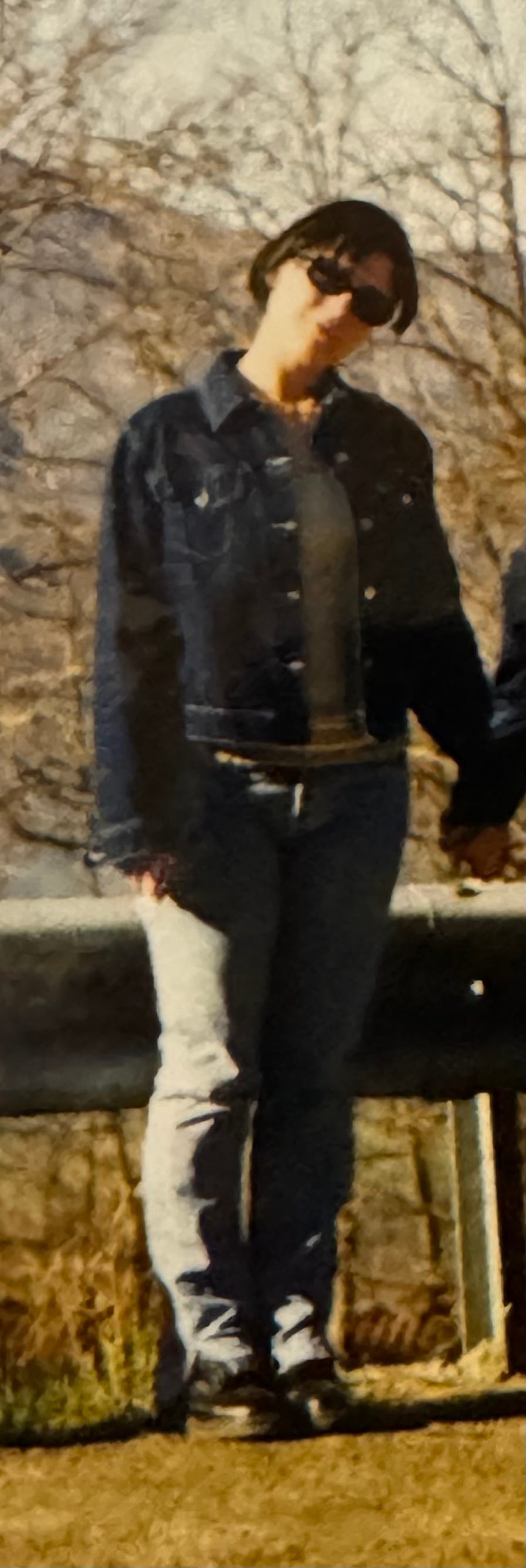
All these years, I thought that my memory of the past was crystal clear: where things happened, when they did, what was said and done. But tonight, after dinner with my old friend, for the first time, I find myself questioning the clarity of those stories.
When I started this essay, with not telling a friend I was taking a barre class, and with the conviction my other fiend had distanced herself from me, I didn’t know there would be a third friend, unexpectedly closing the narrative arch.
I am not questioning the way I felt in high-school. I am not questioning the abusive relationship, or the reason why I left the small town. I am questioning the narrative I have built around these events and the extent to which that narrative, not the events, has had a grip on the entirety of my adult self: intimacy, self-worth, body image, confidence, legitimacy, belonging.
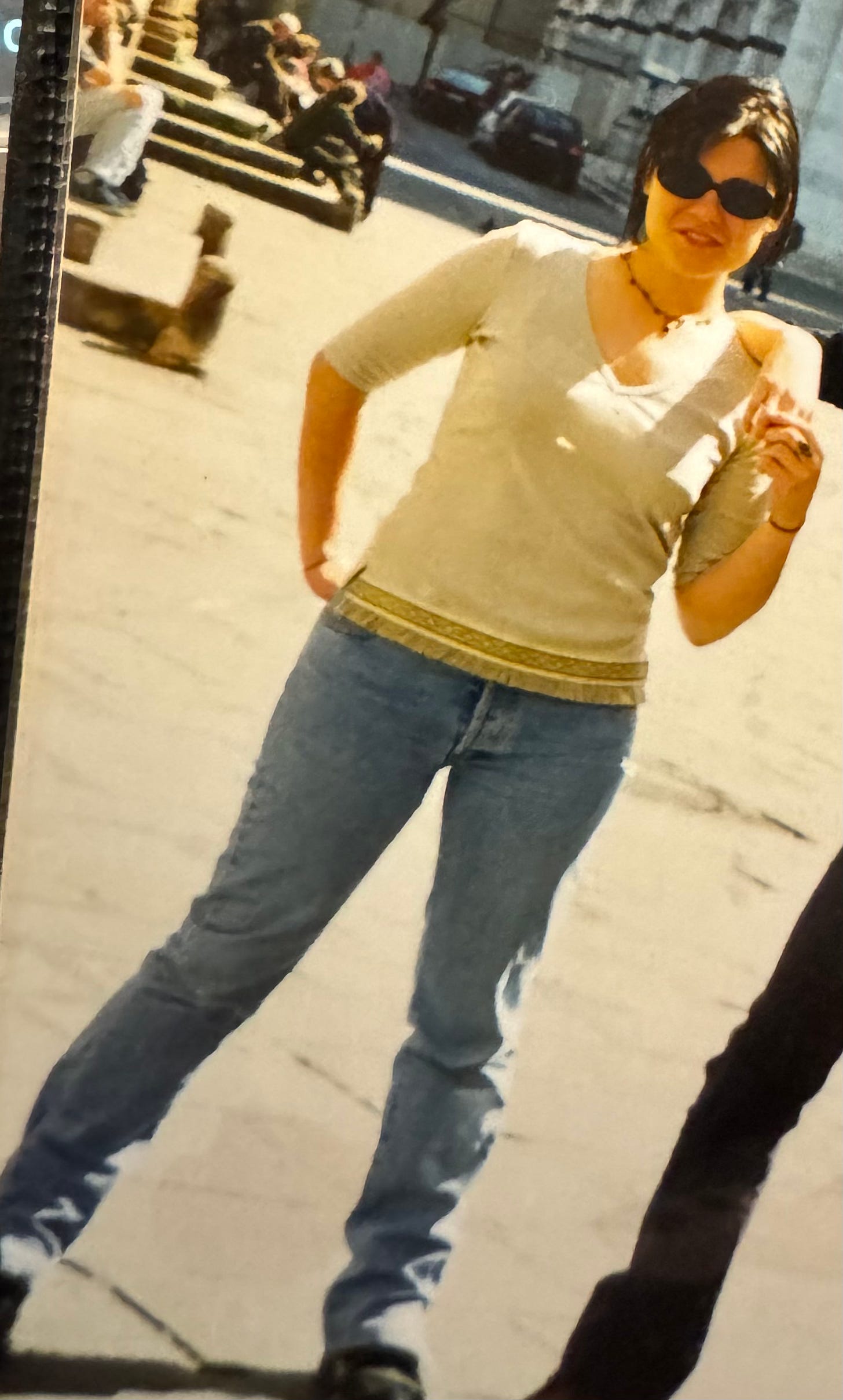

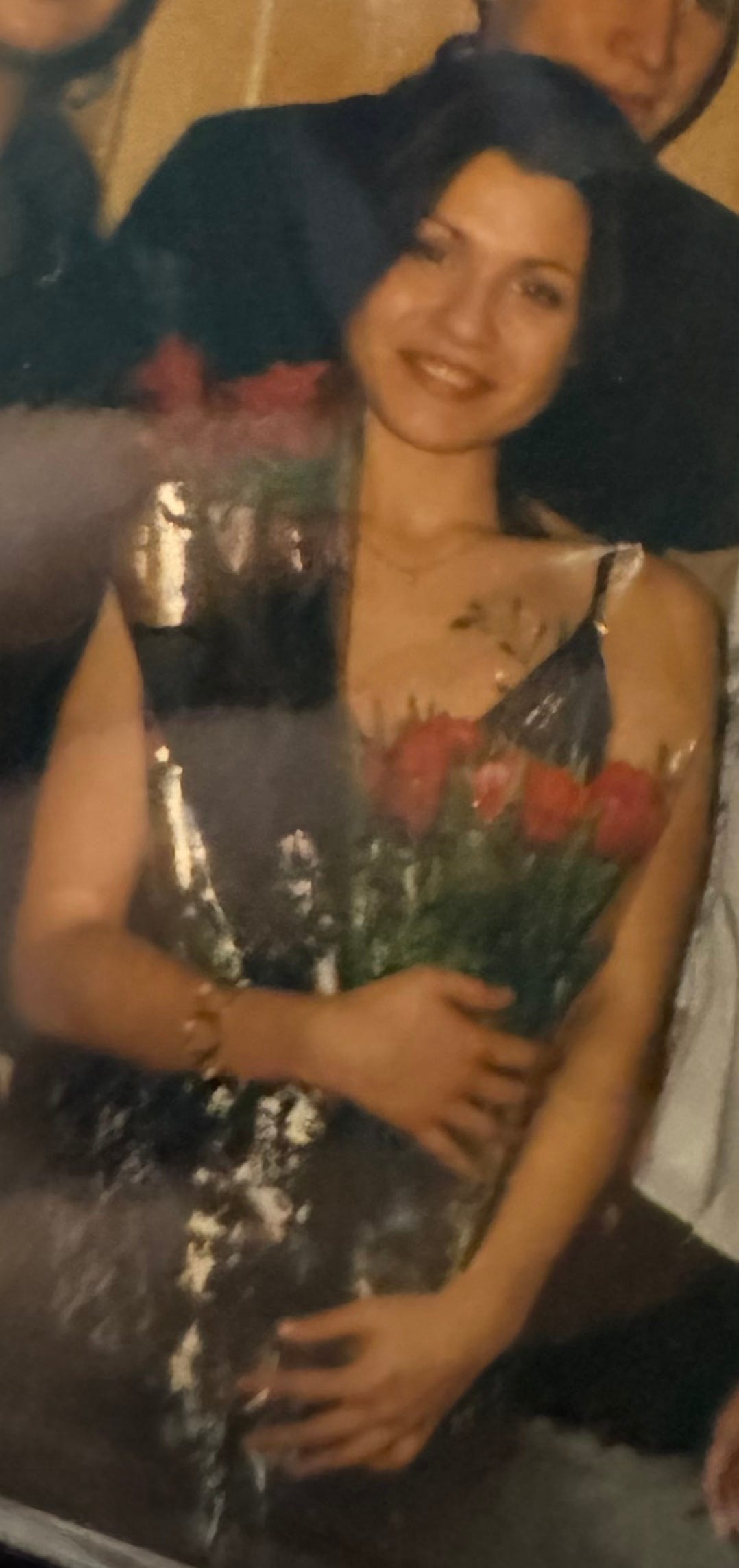
Now I know why I was so anxious about returning to the town where I came from.
Now I know the time has come for me to take Ben and Catherine to the small town where shame used to shine brighter than the winter lights reflected on the walls of the town’s church, which are sweet, something out of Stars Hollow.
We live entirely, especially if we are writers, by the imposition of a narrative line upon disparate images, by the “ideas” with which we have learned to freeze the shifting phantasmagoria which is our actual experience. Joan Didion, The White Album
I opened Didion’s book after writing the end of this essay. Now I know why I brought it with me, why it was the first object I arranged on my nightstand, once arrived in Avigliana.
Now I know, I no longer need to live in frozen memories.
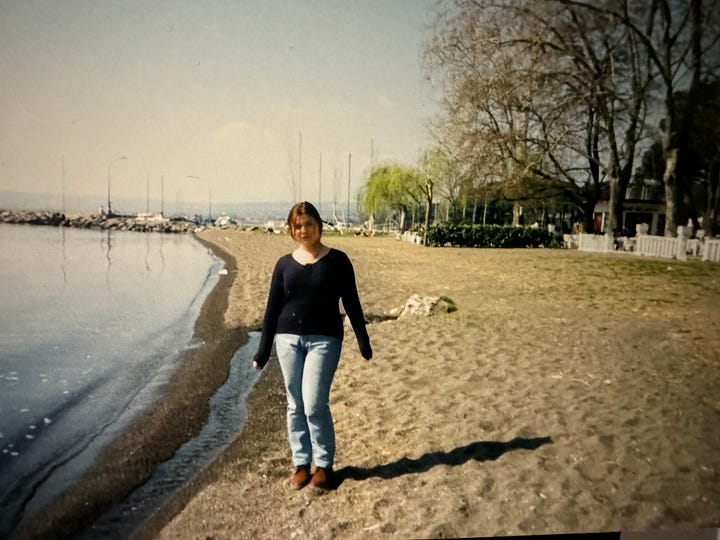
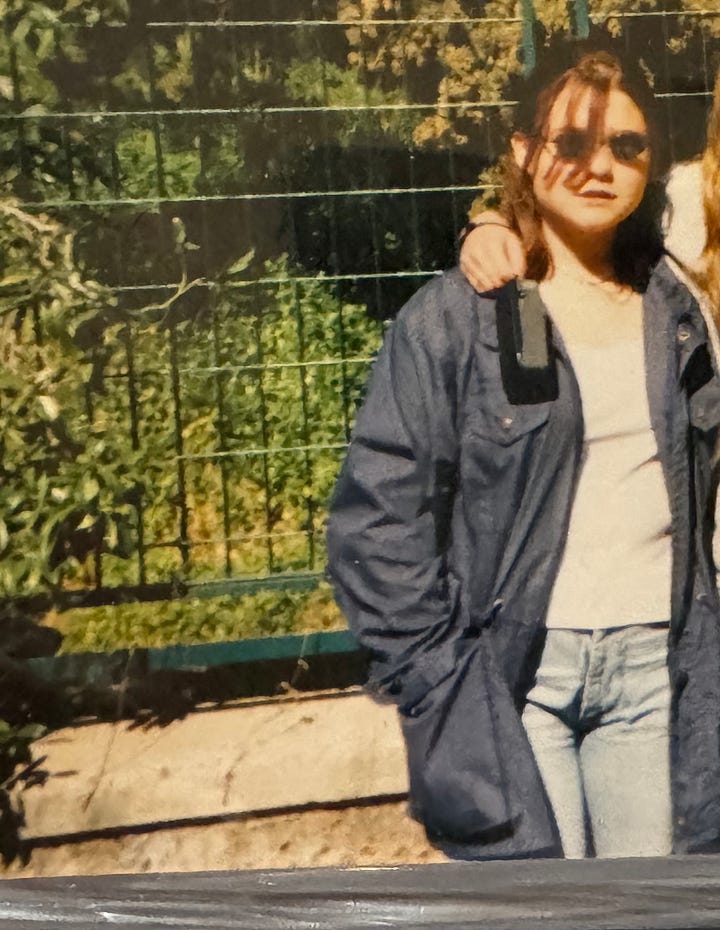
I had just turned 15. I never abandoned 15. I must let 15 go.
It’s summer of 2024.




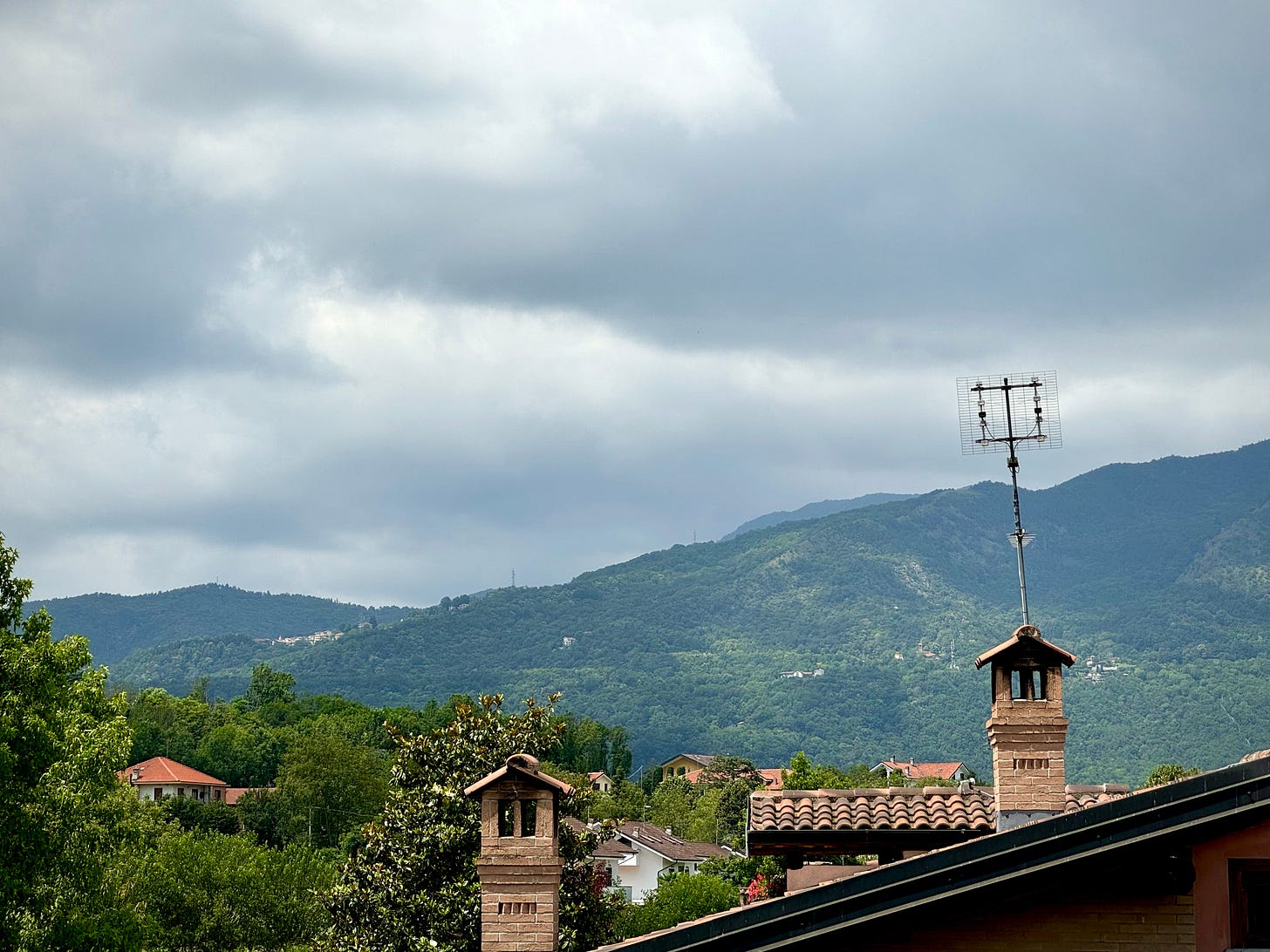
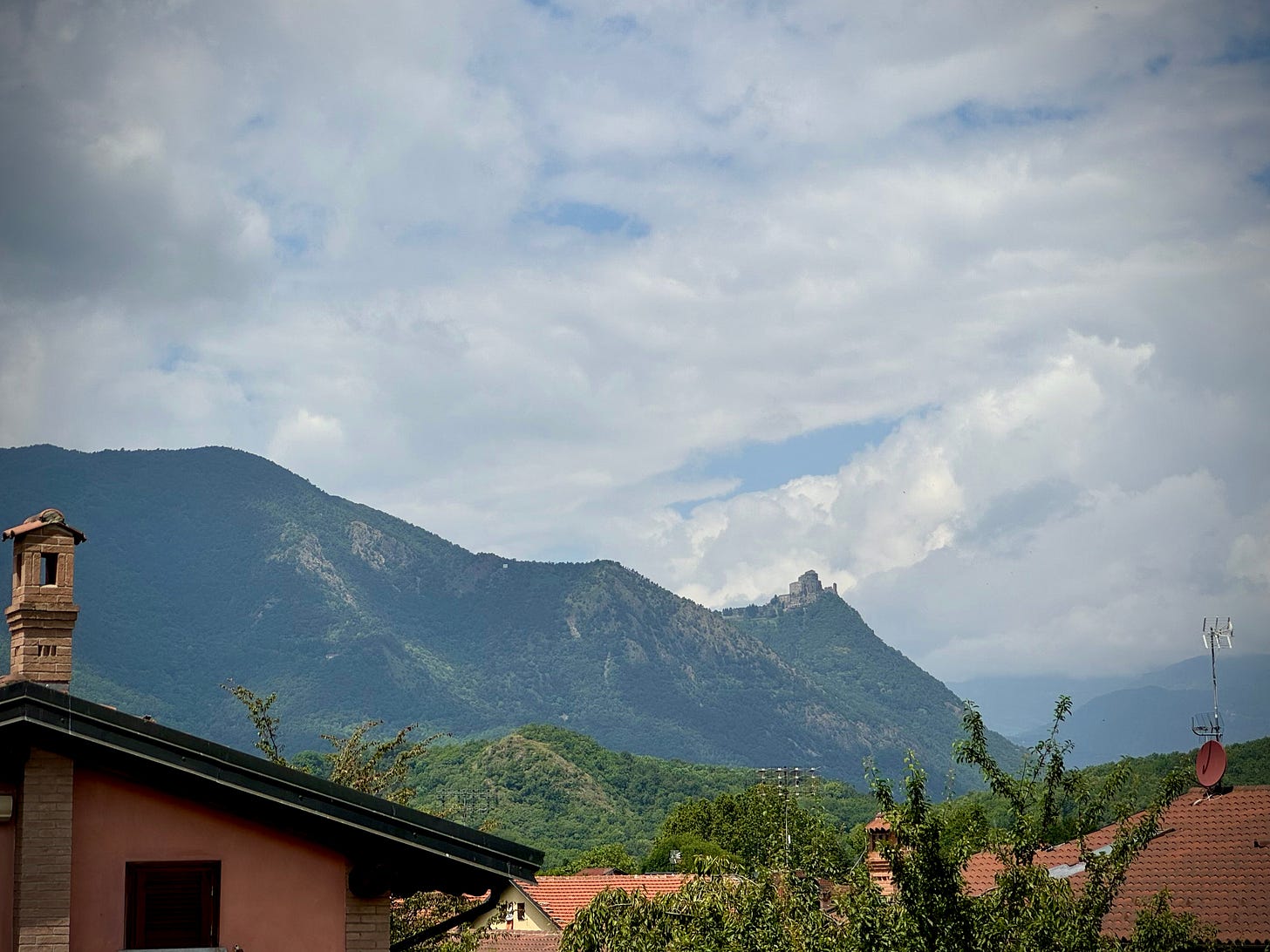
Self realization is a powerful thing. However, it also contains our harsh perceptions of our selves and who we appear to be.
I look at these photos Alice, and I don’t see a fat girl at all. Perhaps a tiny bit plump at age fifteen, but not fat, or even big. That is my perception though.
I have to ask, why thinness, or being skinny is what we all perceive as beauty?
When my son once told how he liked women with curves, and wasn’t attracted to thin girls with straight frames, it made me happy. I felt good knowing he didn’t judge women like the mainstream masses do.
Alice, your writing explores so many personal, and very raw emotions. The self doubt regarding friendships, the people and places that remind us of who we were; pain, memories, a mixed bag of negativity.
Life gives us opportunities to replace those old emotional wounds, with new and healing revelations. They become part of who we are as a whole. Past negatives can metamorphosis into positives as our souls evolve. I truly believe this.
I appreciate you and your honesty. 🩷✌️
Your honesty and vulnerability is beautiful to read. Always look forward to your writings. 🤍 you have a gift!